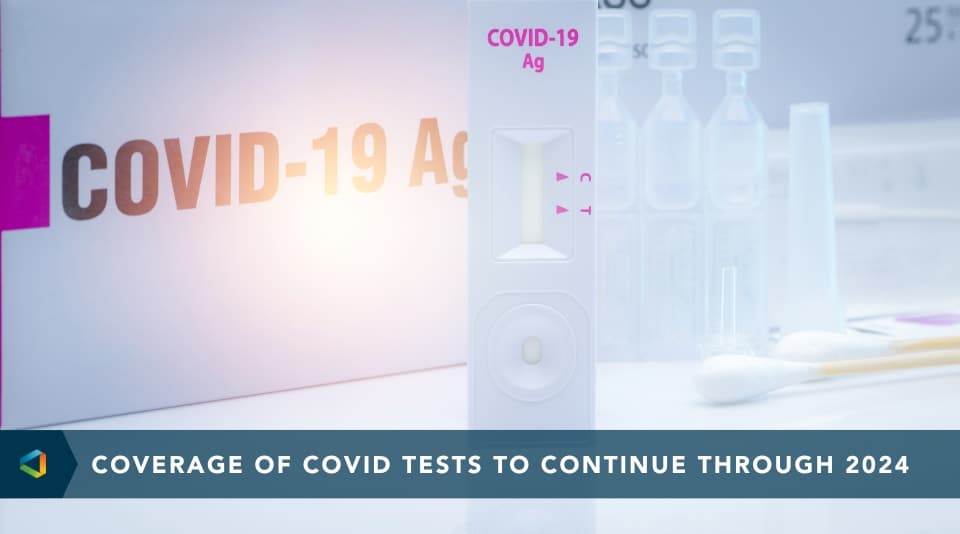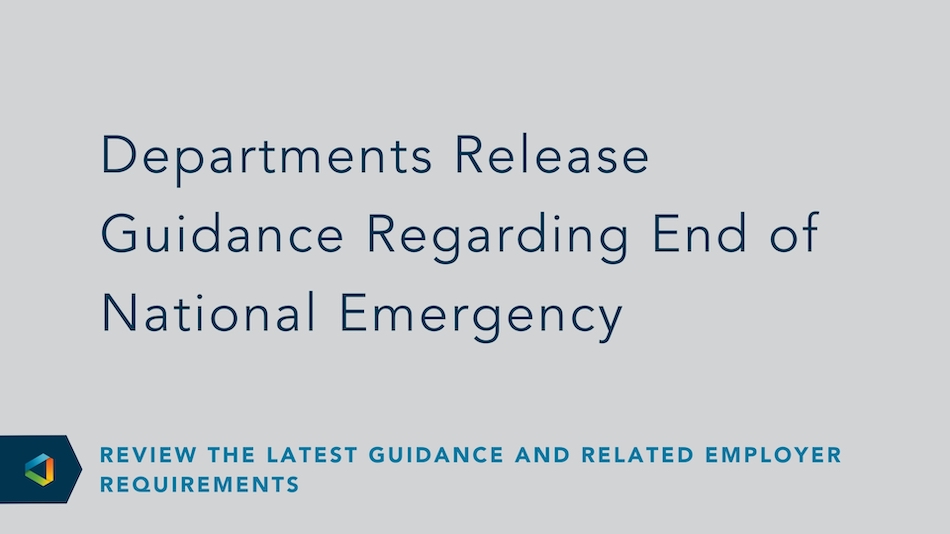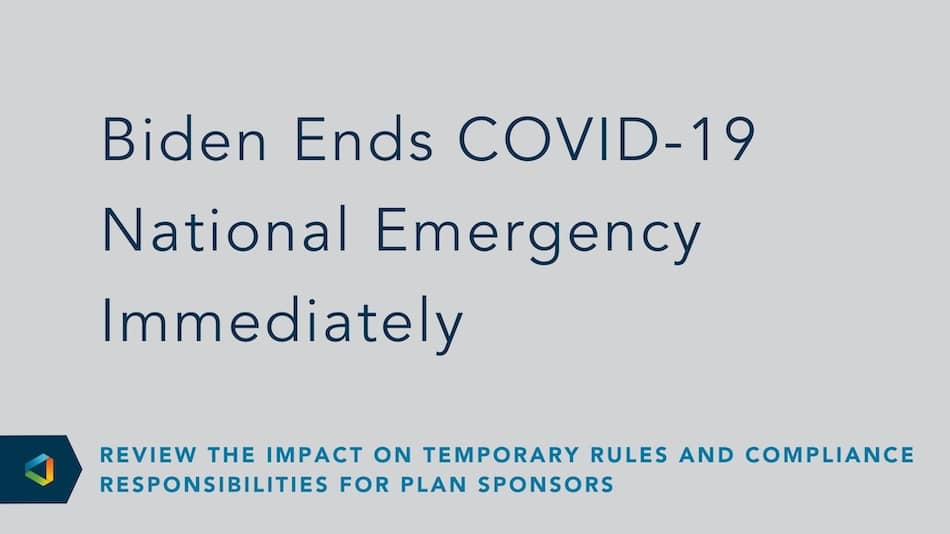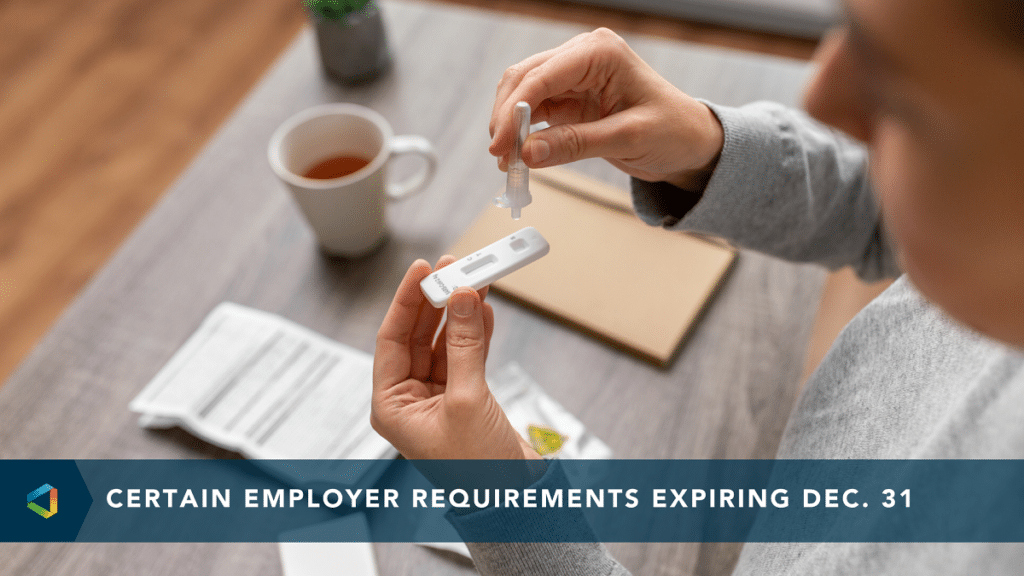Compliance Confidence
Which Federal COVID-19-Related Laws and Regulations Are Still in Effect?
Which Federal COVID-19-Related Laws and Regulations Are Still in Effect?
Updated July 21, 2022
Since the inception of the COVID-19 pandemic, the government has taken steps to mitigate its impact and provide relief.
This led to a surge of legislation and guidance that either temporarily or permanently changed the landscape for health and welfare benefits. Some of these changes were mandatory while others were optional for health plans to adopt.
To add to this complexity, many of these deadlines were extended to deal with the ongoing pandemic creating further administrative challenges for health plans and issuers.
The tables below provide an overview of which major COVID-19-related changes remain in effect and others that have expired. Employers should be vigilant of these rules to determine their compliance obligations and assess which relief they can still take advantage of for their business and employees.
Still in Effect: Mandatory
| COVID-19 Relief | Description | Effective Dates |
|---|---|---|
| “Outbreak Period” | Extension for certain key employee benefit deadlines
DOL and IRS - jointly issued a joint rule, formal notice, and FAQs tolling certain key employee benefits deadlines The formal notice was later clarified and the COBRA election and premium payment dates were clarified and extended |
Outbreak Period: March 1, 2020 – 60 days after the announced end of the of the public health emergency (October 13, 2022).
1st COBRA payment:
Cannot be due before November 1, 2021 |
| Coverage of COVID-19 Vaccines and Preventative Services | CARES Act - all health plans are required to fully cover COVID-19 vaccines and preventative services, regardless of whether the service is provided in-network or out-of-network
See DOL - FAQs |
March 27, 2020 |
| Coverage of COVID-19 Testing | CARES Act - all health plans are required to fully cover COVID-19 testing for enrollees
See DOL - FAQs |
March 27, 2020 |
Still in Effect: Optional |
||
| Wellness Incentives/Surcharges Applicable to COVID-19 Vaccines | DOL, HHS, Treasury - FAQs confirmed that COVID-19 incentives/surcharges are considered health-contingent, activity-based wellness programs under final wellness program rules | October 4, 2021 |
| HIPAA Privacy FAQs on COVID-19 Vaccinations | HIPAA Privacy Rules do not prevent any person or entity from inquiring into an individual’s vaccine status, including COVID-19
See HHS - FAQs |
September 30, 2021 |
| COVID-19 Related PPE Treated as Qualified Medical Expense | COVID-19 related Personal Protective Equipment (PPE) such as masks, hand sanitizers, and sanitizing wipes can be treated as a qualified medical expense under IRC Code Section 213(d)
See IRS – Announcement 2021-7 |
January 1, 2020 (retroactive amendment no later than last date of first calendar year beginning after effective date) |
Newly Effective in 2022: Mandatory
| COVID-19 Relief | Description | Effective Dates |
|---|---|---|
| Coverage of OTC COVID-19 Tests | HHS, DOL, and Treasury – in response to the President Biden Administration’s directive, they collectively released FAQs requiring health plans and health insurance issuers to cover 8 OTC COVID-19 tests per 30-day period per individual beneficiary | January 15, 2022 |
Newly Effective in 2022: Optional |
||
| HDHP First Dollar Telehealth Coverage | CAA (2022) – permits HDHPs to cover telehealth and other remote care services prior to members reaching deductible
* Similar to expired provision under the CARES Act |
April – December 2022 |
Expired: Mandatory
Age Limit Relief Under DCAPs
CAA (2021) – permitted DCAP reimbursements, normally for dependents under age 12, to be applied to dependents turning 13
See IRS – Notice 2021-15
2020 (allowed carryover of unused funds to 2021 for reimbursement until dependent turned 13)HDHP First Dollar Telehealth Coverage
CARES Act - permitted HDHPs to cover telehealth and other remote care services prior to members reaching deductible
See DOL - FAQs
Plan years beginning on or before December 31, 2021 (can make retroactive to January 1, 2020)
| COVID-19 Relief | Description | Effective Dates |
|---|---|---|
| COBRA Subsidy | ARPA - required employers to subsidize the full cost of COBRA for individuals who lost coverage due to a reduction in hours or involuntary termination and provided a process for employers to seek a tax credit
See DOL – FAQs See IRS – Notice 2021-31 & Notice 2021-46 |
April 1 – September 30, 2021 |
| Emergency Paid Sick Leave and Emergency Family and Medical Leave Expansion Act | FFCRA - employers with fewer than 500 employees were required to provide paid leave for certain qualifying reasons related to the pandemic and could seek a tax credit
See DOL – FAQs *Four key provisions of the DOL regulations were struck down |
April 1 – December 31, 2020 |
| Unlimited 12-Month FSA Carryover or Grace Period | CAA (2021) – permitted FSAs to allow for the carryover of funds without limit or extended grace periods
See IRS – Notice 2021-15 |
Carryover – unused funds from 2020 to 2021 and 2021 to 2022
Grace period – add or extend for 2020 and/or 2021 plan years |
Expired: Optional |
||
| Relaxed Cafeteria Plan Election Rules | IRS – Notice 2020-29 and Notice 2021-15 provided Section 125 mid-year election change relief | IRS Notice 2020-29 for 2020 and IRS Notice 2021-15 for 2021 |
| Increased DCAP Contribution Limit | ARPA - permitted DCAP contributions to be increased from $5,000 to $10,500 (or from $2,500 to $5,250 for individuals who are married but filing separately).
See IRS – Notice 2021-26 |
2021 |




